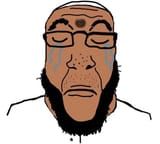>>510723217 (OP)
Kant makes the fundamentally false assertion that apart from the state there would be no complete right of property. Even in a state of nature there is property with complete natural, i.e., moral right, which cannot be injured without wrong, but may without wrong be defended to the uttermost. All true, i.e., moral, right of property is based simply and solely on work, as was pretty generally assumed before Kant, and is distinctly and beautifully expressed in the oldest of all codes of law:
>Wise men who know the past explain that a cultured field is the property of him who cut down the wood and cleared and ploughed it, as an antelope belongs to the first hunter who mortally wounds it.
Kant's philosophy of law is an extraordinary concatenation of errors all leading to each other, and he bases the right of property upon first occupation. To me this is only explicable on the supposition that his powers were failing through old age. For how should the mere avowal of my will to exclude others from the use of a thing at once give me a right to it? Clearly such an avowal itself requires a foundation of right, instead of being one, as Kant assumes. And how would he act unjustly in se, i.e., morally, who does not respect that claim to the sole possession of a thing which is based upon nothing but its own avowal? How should his conscience trouble him about it?
For it is so clear and easy to understand that there can be absolutely no such thing as a just seizure of anything, but only a just conversion or acquired possession of it, by spending our own original powers upon it.
 7/18/2025, 4:52:58 PM
No.510723217
>>510723344
>>510723398
>>510723420
>>510723475
>>510724608
>>510724754
>>510725180
>>510725309
>>510725497
>>510726078
>>510726141
>>510726308
>>510726488
>>510726590
>>510726638
>>510726651
>>510726709
>>510726722
>>510726758
>>510726922
>>510726952
>>510727180
>>510727321
7/18/2025, 4:52:58 PM
No.510723217
>>510723344
>>510723398
>>510723420
>>510723475
>>510724608
>>510724754
>>510725180
>>510725309
>>510725497
>>510726078
>>510726141
>>510726308
>>510726488
>>510726590
>>510726638
>>510726651
>>510726709
>>510726722
>>510726758
>>510726922
>>510726952
>>510727180
>>510727321









